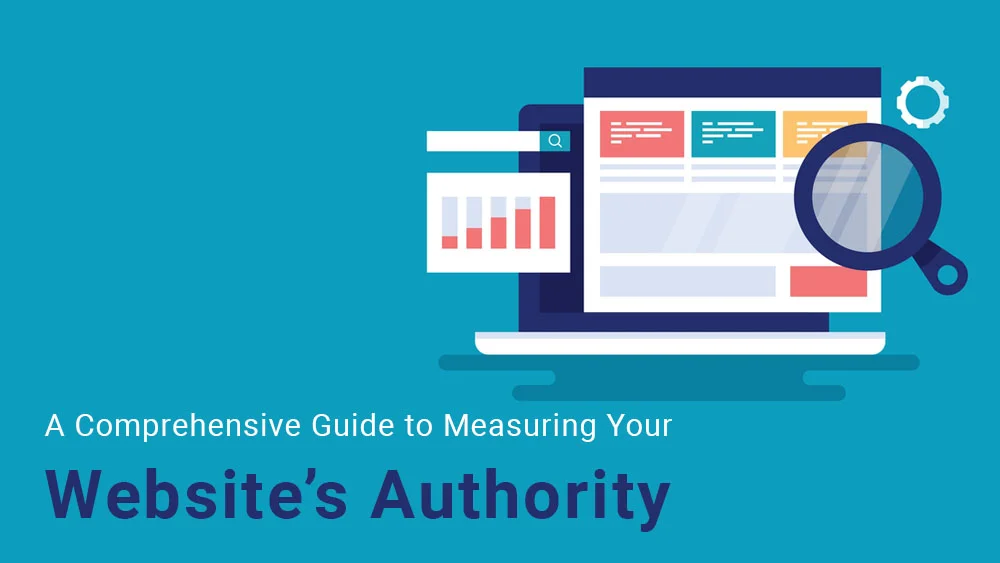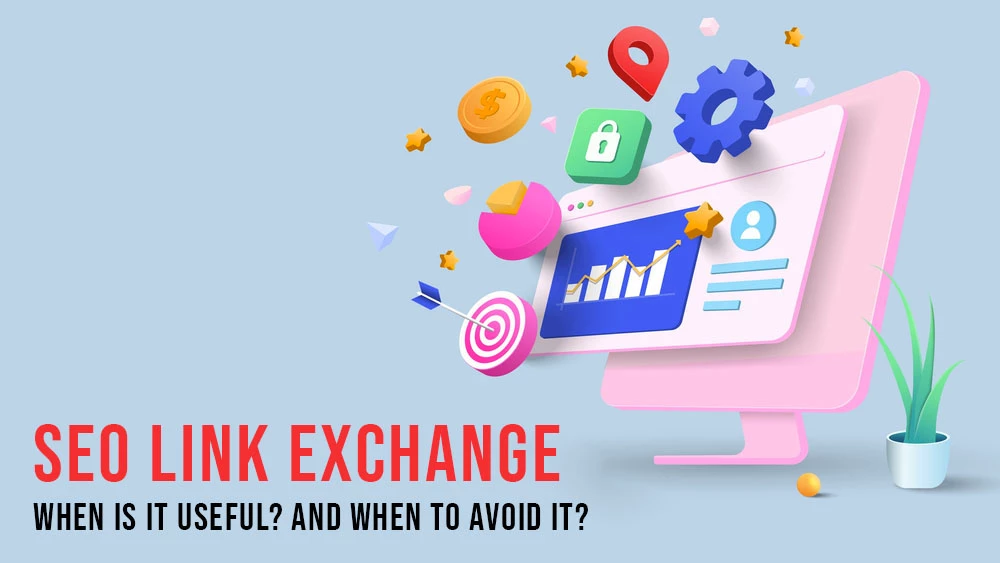Measuring your website’s authority is crucial for improving your search engine rankings and attracting more traffic. But how do you know if your website is authoritative? This comprehensive guide will teach you everything you need to know about measuring your website’s authority. That includes how to track your progress and improve your rankings.
Your website’s authority reveals the level of respect that search engine bots accord it. In general, sites that are more authoritative rank higher. Higher than newly created or low-quality sites that do not yet have a good reputation.
As it should help all of your pages perform better in the search engine results pages (SERPs). Increasing your website authority can be a helpful component of an SEO plan. But keep in mind that website authority is the final goal and not always the method used to get there.
Website Authority: A Trip Down the History Lane
Larry Page and Sergey Brin are the developers of the concept “PageRank.” It is an algorithm that assess the importance of a web page. It happens by counting the number of links pointing to it from other websites on the internet. That was many years ago between (1997–1998).
This was a key factor in the search rankings of the first Google search engine, which debuted in 1998. Ever since that “Big Bang,” people consider it to be one of the fundamental concepts of how a web page appears in search results.
The idea of website authority has evolved over time to become more complex. The number of inbound links to a page is no longer the only factor to consider. Other factors include the authority of the domains those links come from. Additionally, whether the owners of the external website were compensated to include the link or links.
Website authority is no longer determined per page. Newly released pages may score highly even without any inbound links going to them. As of yet, if your domain is seen as an authority. Because of this, you may increase your website’s authority over time. Moreover, you should do it constantly to prevent a decline in your search engine ranks.
Search Engine Result Pages (SERPs): What Are They?
After typing a query into Google, Yahoo, or any other search engine, the page that displays the results is known as a search engine results page, or SERP for short. The (SERP) layout of each search engine is unique. Nevertheless, given that Google is the most widely used search engine (it holds over 80% of the market share), we will concentrate on certain factors. Factors like the characteristics, features, elements, and algorithms of Google to get a result that fits it the most.
What Characteristics Does a SERP Have?
The SERP of today has more visual variety than it had in the past. Searches can also provide results that include photos, shopping recommendations, tweets, or information cards. In addition to the basic results that only show the site name and metadata. Each feature typically falls into one of the following groups:
- Knowledge graph features: These can be found on the SERP in a panel or box, frequently on the right.
- Rich snippets: These enhance a result with additional images, such as product reviews with stars or news results with photos.
- Paid listings: These are available through keyword bidding on pertinent terms. The top of the results that have been paid for will contain a notice identifying them as advertising.
- Results that are universal: These are distinct outcomes that coexist with natural outcomes.
How to Measure Website Authority?
You have access to a broad number of tools and sources of information. That is when it comes to establishing the level of authority that your website possesses. Moz is responsible for the creation of one of the metrics that is most extensively used today: domain authority (DA). On the basis of these criteria, your website will be assigned a score between one and one hundred. With higher scores indicating a higher level of authority.
Other measures that ought to be taken into consideration include citation flow, trust flow, and page authority (PA). It is essential to keep close track of these indicators on a regular basis. Additionally, work toward improving them over time. That is by employing strategies such as creating content of high quality and constructing backlinks from reputable websites.
Tools for Measuring Your Website’s Authority
Some accessible methods for determining the level of authority that your website possesses include Moz’s Domain Authority (DA) statistic, Page Authority (PA), Trust Flow, and Citation Flow. There are also other tools available. Utilizing these indicators will assist you in tracking your success and identifying areas in which you may make improvements.
It is critical to keep a close eye on these indicators on a regular basis and work toward improving them using tactics such as producing material of high quality and constructing backlinks from credible sites. You may boost the ranks of your website in the search engines and draw in more visitors by working to increase its authority.
Factors That Influence Website Authority: Measuring Website Authority 101
There are several factors that are considered to have a bigger influence on your website’s authority. These factors are of crucial importance to knowing and understanding their metrics. That is for Google to actually rank your website and help you with your exposure rate. The following are some of the main factors that influence your website’s authority:
The Number of Inbound Links You Have Linked to Your Website’s Content:
The initial influencer continues to wield a substantial amount of sway over the authority score of your website. In general, an increase in the number of other websites that link to you will result in an increase in your domain authority. This is because the number of websites that connect to you determines your domain authority. Having said that, there are a few notable exceptions to this rule, including the following:
Inbound links. Ones that instruct the search engine bots not to allow any authority down a particular link path. That happens by using the rel=”no follow” attribute on the link. Inbound links that have been paid for. Which result in a penalty as a result of Google’s crackdown on ‘unnatural’ link patterns. Furthermore, the tampering of the authority meter links from websites that have an extremely low authority score on their own may contribute less to your rating because of this.
It is important to keep in mind that any inbound link can still bring actual visitors if they click on it; therefore, the advantages of link building campaigns are not limited to just organic search engine optimization. However, if you are able to obtain an inbound link included naturally in a page on a website that has high authority, and especially if you are able to do so without making use of the ‘no follow’ attribute, then the authority of your website is likely to increase as a result of this.
Linking Websites: The Authority They Have
If a third-party site that connects to you has a higher perceived level of authority in its own right, this factor is likely to have a greater impact on your site authority score. You may think of your authority as a type of average of all of the links that point to your page, times the authority of the website that they point to. This will give you an idea of how authoritative your page is.
It is important to keep this in mind if you are conducting an authority campaign for your website as part of your continuous search engine optimization activities. For instance, if you are able to get mentioned in an article on a high-authority news website that also includes a link to your homepage, just that one mention on its own has the potential to convey significant ‘link juice’ from the high-authority news website to your own domain.
If a website that connects to you improves its authority score, this can cause your rating to improve as a result. This is an intriguing consequence of this fact. Therefore, if you are aware of a website that is still in its infancy but has powerful backers and significant goals, it may be worthwhile to get featured on that website, complete with a referral link. This connection will pass more and more value over to your domain in the future as the status of the third-party site rises.
The Total Number of Links Leading Away from the Referring Websites
An essential caveat to the foregoing is that each link passes less authority, also known colloquially as “link juice,” the more outward referral connections a website has. It’s not difficult to comprehend why this is the case. By incorporating a huge number of outbound links in its content, a website with high authority cannot fudge the rankings of large portions of the internet.
As a result, when creating your inbound connections, strive to determine how frequently a specific referral site links to other websites. A connection from a reputable website that rarely contains external links in its pages is far more valuable than a link from a similarly reputable website that frequently hyperlinks brand names and other references to sources or lists a lengthy list of references at the foot of every page.
Tips for Improving Website Authority
Improving your website’s authority takes time and effort, but there are several tips you can follow to help boost your rankings. First, create relevant content of high quality that provides valuable information to your audience. This will help attract backlinks from other reputable sites, which can further increase your authority. Additionally, make sure your website is user-friendly and easy to navigate, with fast loading times and mobile responsiveness. Finally, engage with your audience through social media and other channels to build relationships and establish your brand as an authority in your industry.
Wrapping It Up!
Your website’s domain authority is of great importance. Having a good domain authority percentage will allow you to pass the doors of Google safely without having to worry about being rejected or having your website at the bottom of the search page. Our services help you exchange links with different domains and networks. Additionally, you get to familiarize yourself with different link exchange platforms that will help strengthen your whole link building and backlinking process for your domain. Sign up now for our domain, Linkexchange.AI. Our domain is free and is considered a good start for your platform or domain to be taken to the next level!










